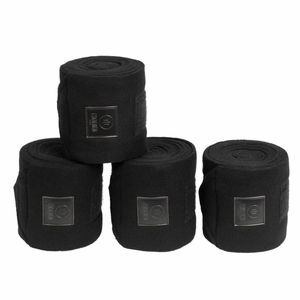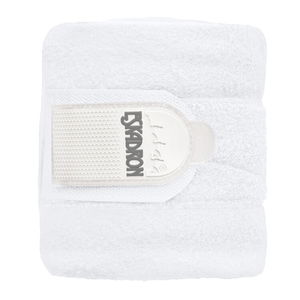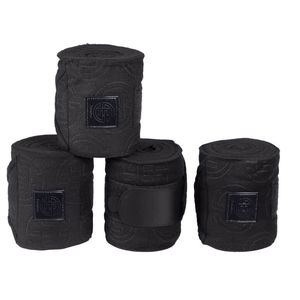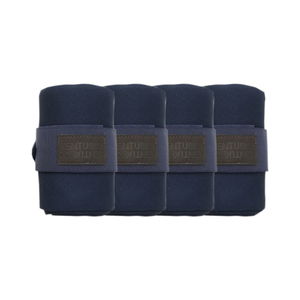Horse Bandages
(124)Frequently asked questions about Bandages
Bandages have, contrary to earlier assumptions, neither a supporting nor a protective function, but only prevent minor injuries, for example when the horse grazes the legs with its hooves. Nevertheless, they are a useful piece of equipment in training because they keep the ligaments and tendons underneath warm. Particularly older horses and those sensitive to the cold benefit from this. Visually, however, bandages are a real eye-catcher and since they round off the outfit ideally, they are extremely popular especially with dressage riders.
Most riders use bandages, especially in dressage, to protect the horse's legs or for optical reasons. It often happens with young horses, but also with well-trained horses, that they kick themselves during training. In this case, bandages offer good protection against injuries. In addition, bandages can help to keep tendons and ligaments warm, which is especially beneficial for older horses. You can also use bandages for transport or as an alternative to stable boots, but it is important to use well-padded bandage pads. Since there are bandages in many different colors and designs, you can also optimally enhance the look of your horse.
To benefit from the advantages of the bandages, you must apply them correctly to the horse's leg. The bandage should never be too loose, otherwise small stones and sand can collect underneath and cause chafing. There is also a risk that the bandage, which is too loosely wrapped, will slip or even come loose, causing the horse to stumble. However, the bandage should not be too tight on the leg either, otherwise blood circulation and lymphatic drainage will be disturbed. For bandaging, place the bandage in the middle of the tubular bone and wrap it down to the head of the fetlock. Then go back up to the carpal joint. Make sure that you bandage the leg at even intervals and that no wrinkles form.
To find the right bandage for your horse, you should consider for what purpose you need it. There are three different types of bandages: Fleece bandages, wool bandages and flex bandages. For training, most riders use bandages made of fleece, as they are very soft and wick sweat well. For transport or in the stable, wool bandages are suitable because the material is durable. If you use a flex bandage, you should also use a bandage pad. Without a pad, you run the risk of wrapping the bandage too tightly around the horse's leg, which can cause health problems.
Before you buy bandages for your horse, you should first learn about the different sizes, because not every size fits every horse. Mostly the sizes warmblood (WB), thoroughbred (VB) and pony (P) are available. The difference lies in the length and width of the bandages. For large horses, the bandages should be about 3 to 3.5 meters long and for ponies 2 to 2.5 meters. Since the fabric is quite thin and fine in most cases, you can still cut the bandages to fit your horse if necessary.







































































































































